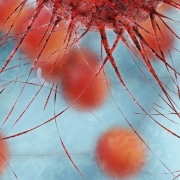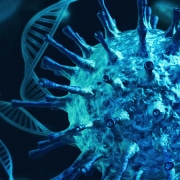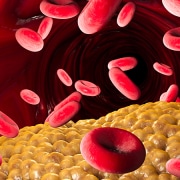Under the radar: Exploring clonal haematopoiesis
We investigate genomics’ role in the prevalence of CH and the difference early diagnosis could make
Ever heard of clonal haematopoiesis (CH)? The condition, which increases the risk of developing blood cancers and cardiovascular disease, is relatively unknown in the public consciousness but it is extremely common, affecting up to a third of people.
This year, newly published research has revealed more about its cause. The study found inherited gene variants that affect the chance of developing the condition and could help with early detection of some leukaemias and the development of novel treatment strategies.
What is clonal haematopoiesis?
Haematopoiesis is the process of producing new blood cells and plasma: a natural function that takes place constantly throughout life. Hematopoietic (blood-forming) stem cells in the bone marrow are responsible for generating all different kinds of blood components. These stem cells are the same ones that are replaced when a patient gets a stem cell transplant to treat conditions such as leukaemia or sickle cell disease.
CH is a condition that occurs when a mutation in a hematopoietic stem cell allows that cell to replicate more effectively, resulting in whole populations of blood cells all carrying the same mutation.
Because the cells in our bodies acquire mutations over the course of our lifetimes, the chances of acquiring a mutation that drives CH increases with age. Fewer than 1% of people under 40 are affected but it is increasingly common as people get older.
Effects on health
CH doesn’t have any symptoms but is known to be associated with accelerated epigenetic ageing and an increased risk of a number of adverse health outcomes, including:
- Blood cancers, specifically myelodysplastic syndrome and acute myeloid leukaemia as much as tenfold, but these cancers are rare so the absolute risk of being affected is still small, even in people with CH.
- Cardiovascular disease, including heart attacks and strokes. This may help explain why some people without traditional risk factors (high cholesterol, high blood pressure, obesity, type 2 diabetes, and/or smoking) develop atherosclerosis – the hardening of the arteries, a feature common in cardiovascular disease.
- Atrial fibrillation, where the heartbeat is irregular or abnormally fast.
Inherited factors
Although the development of CH is difficult to predict, being dependent on the acquisition of mutations in blood progenitor cells, research has shown that people with some inherited genetic variants have a higher chance of developing the condition.
A recent study published in Nature Genetics using data from over 200,000 UK Biobank volunteers found inherited variants in 14 genes that increase a person’s risk of developing CH. These variants all occur in genes that have previously been associated with other cancer types and that are known to be involved in processes like cell migration and DNA repair.
The researchers were also able to identify opportunities where the genetic pathways driving CH could be susceptible to drug interventions, providing avenues for research into future treatments. They also showed that smoking has a strong causal effect on the likelihood of developing CH: a message that clinicians can share with their patients to improve their future health.
–
Please note: This article is for informational or educational purposes, and does not substitute professional medical advice.









